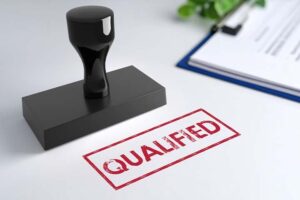Table of Contents
If you are replacing your boiler, perhaps a question that crosses your mind is— does a condensing boiler need a water tank? The short answer? It all depends on what kind of boiler it is.
Condensing boilers are among the most efficient heating solutions today. They are, in fact, around 94% efficient, compared to old non-condensing boilers, which are merely 70-80% efficient. They achieve this by reusing energy from waste gases, so they are far more energy-saving for your wallet as well as the environment.
Some boilers, like a combi boiler, don’t need a tank because water is heated as needed. Others still, like a system boiler and regular boiler, need a tank to store hot water. Let’s make it simple so you can see what’s best suited for your home.
Condensing Boilers & Their Types
A condensing boiler is a modern type of high-efficiency boiler that recovers and recycles heat otherwise wasted. All new boilers sold in the UK since 2005 are condensing boilers because they are so much more energy efficient.
Older boilers used to lose as much as 30% of heat via waste gases. Condensing boilers counteract this by having a unique heat exchanger to reclaim heat from water vapour before its escape. They are over 90% efficient as a result, delivering more heat from an equal amount of gas.
There are three major types of condensing boilers:
- Combi Boilers: Provide hot water and heating as required, without a tank.
- System Boilers: They contain hot water in a cylinder but they do not need a cold water tank.
- Regular Boilers: Need a hot water cylinder and a cold water tank. These are typically in older properties.
All condensing boilers are over 90% efficient. They utilise nearly all of the energy created. So are a sensible option when it comes to reducing energy costs.
Air Source Heat Pump Grants
How Condensing Boilers Work?
Condensing boilers are designed specifically to capture wasted heat that would otherwise be lost. They do this through a Flue Gas Recovery System, and as such are far more energy efficient than standard boilers.
That’s how it works:
- First Heat Exchange: The first heat exchange system has cold water going into the primary heat exchanger. The combustion gas heats water here. It creates hot flue gases (steam and CO₂), which under normal conditions exit via the flue.
- Flue Gas Recovery: Instead of losing this heat, condensing boilers recover it in a secondary heat exchanger. The steam cools, and heat energy transfers back into the system.
- Condensation Process: It becomes water droplets as steam cools down. These are drained away, while the recovered heat is used to warm more water.
Because of this double heat exchange process, condensing boilers attain more than 92% efficiency. The end result is less energy costs and less gas waste.
Does a Condensing Boiler Need a Water Tank?
No, a water tank isn’t needed for most condensing boilers. But it varies by boiler type:
- Combi Boilers: No tank needed! They heat water directly from the main supply. So no hot water cylinder or cold water cylinder is needed. They are space-saving and are fully suitable for small houses.
- System Boilers: They possess a hot water cylinder but not a cold water tank. They store hot water, so are suited to homes with more than a single bathroom.
- Regular Boilers: These do need a water tank. They involve a hot water cylinder and a cold water storage tank (usually in the loft space).
Thus, if space conservation is your priority, a combi-condensing boiler would be perfect. But if your property is large with greater hot water needs, a system boiler may prove more suitable.
Mains-fed Condensing Boiler
A mains-fed boiler heats water from the mains directly. It doesn’t require a cold water tank. The most popular form of mains-fed condensing boilers are combi boilers.
Because they are connected directly to supply lines, they can provide hot water instantly on demand. With a mere turn of a tap, it heats water instantly in the boiler. They are thus cost-saving, space-saving, and perfect in small houses.
But if multiple showers or taps are run at once, pressure may decrease. That’s why mains-fed combi boilers work best in homes with great water pressure and low hot water usage.
When Do You Need a Hot Water Cylinder for a Condensing Boiler?
You will require a hot water cylinder if you are using a system or traditional condensing boiler. They hold hot water in reserve in case it’s necessary to call upon it later. So these boilers are well-suited to those with large families who use multiple bathrooms.
System boilers require a cylinder of hot water but no cold water tank. They are well suited to households with high water usage.
The regular boilers call for a hot water cylinder and a cold water tank, typically used in traditional heating installations.
Things to Know About Condensing Boilers
The following are facts about the condensing boilers that you should know:
1. Condensing Boilers are Highly Efficient
Older boilers lose as much as 30% of the heat by letting hot gases escape through the flue. The condensing boilers reclaim heat and use it to pre-heat water. They are over 90% efficient, saving energy and reducing your heating costs.
Using less fuel to generate an equal proportion of heat, condensing boilers are efficient and environmentally friendly.
2. They Save More Space Than You Think
Do you know a wall-mounting condensing boiler occupies 60% less room compared to outdated floor-standing boilers?
A combi boiler measures about the size of a travel bag, yet a traditional boiler with a water heater occupies more than 12 square feet of room space. You do not need a water tank with a combi. So you save room in your home.
3. They Need Way Less Maintenance
Condensing boilers are more durable and require less maintenance. Some high-end boilers require only periodic five-year cleanings, while older boilers require annual service. It translates into lower maintenance costs and fewer call-outs.
4. They Adapt to Weather Conditions to Save Energy
These boilers can adjust automatically with temperature:
- Outdoor Reset: The boiler reduces its level of heating when it’s hot outdoors, conserving energy when it’s nice out.
- Indoor Reset: They incorporate sensors with some having indoor temperature sensors like Bosch Greenstar to adjust heating with greater comfort and efficiency.
Moreover, various condensing boilers are eligible for energy rebates and tax credits, and this constitutes cost-saving on gas bill payments.
Are Condensing Boilers the Same as Combi Boilers?
Yes and no. A combi boiler is a type of condensing boiler, but not all condensing boilers are combi boilers.
All boilers sold in the United Kingdom post-2005 are mandated to be condensing boilers if they are regular boilers, system boilers, or combi boilers. All new boilers incorporate condensing technology in order to reap maximum efficiency in the system as well as to eliminate wastage of energy.
Thus, when it comes to boiler choice, there isn’t a choice between non-condensing and condensing anymore because all boilers nowadays condense. The real choice is between a combi, system, or regular boiler based on what your house needs.
Tankless Condensing Boiler Benefits
Combi boilers are the most common form of tankless boilers and are extremely useful in many respects:
Conserves Space
A combi boiler doesn’t require a large water tank and will easily accommodate a kitchen cupboard or even a utility room. It’s perfect for flats and small homes where space is limited.
Instant Hot Water
Combi boiler only heats water when you need it. So no waiting for water tanks to reheat and fill. There’s hot water when needed.
Lower Energy Bills
With no hot water storage requirements, you just heat water as you need it. It conserves wasted energy and keeps your costs lower in price.
Lower Maintenance
Old tank-based hot water systems require continuous maintenance to prevent leaks, lime scaling, and insulation issue malfunctions. Tankless ones eliminate all these.
More Efficient
Combi boilers are more energy efficient because they re-use heat from exhaust gasses. They waste less energy and less heat and are also a more environmentally friendly option as a result.
Is a Tankless Boiler Right for Your Home?
A combi-boiler will be suitable if:
- You reside in a small or a medium-sized house.
- Your family does not shower multiple times at once.
- You’d like to have an energy-saving and space-saving heating system.
A system boiler or regular boiler with a hot water cylinder may prove more suitable if:
- You own a larger household with high water demand requirements.
- Your property has an existing conventional heating system and don’t wish to change your whole system.
- You require a hot water stand-by supply as a possibility in case your boiler fails.
How to Select the Ideal Boiler for Your Home?
If you are not certain if a tankless combi boiler would suit your needs, think over the following:
- House size: Small to medium houses utilise combi boilers to their full extent. Whereas large houses with many bathrooms will need a system or conventional boiler.
- Water demand: If multiple people use hot water at the same time in your home, a system boiler with a hot water cylinder may be more suited to this situation.
- Space Available: If you have limited space, a combi boiler works better. As it doesn’t require a cylinder or tank.
The Bottom Line
Condensing boilers are widely used in the UK as they are very efficient. They recover heat, which otherwise would be wasted, and thus consume less energy and are less expensive. You can get instant hot water with combi boilers. They are also known as condensing boilers. But the system and regular boilers store hot water in a cylinder.
Choosing between them relies on how large your home and hot water needs are. While in the long run, condensing boilers are less costly, they are costlier to buy and require proper maintenance to reach their full potential. But they are worth it.
Frequently Asked Questions
Yes, you can. A combi boiler is a type of condensing boiler that provides hot water as and when you need it. So it doesn’t need a separate water tank.
Although highly efficient, condensing boilers also possess certain disadvantages:
- Higher initial cost compared to non-condensing boilers.
- More complex installation, in some cases including added pipework.
- Risk of frozen condensate pipes under extreme cold conditions.
A well-maintained condensing boiler will last between 15 to 20 years. Servicing prolongs its lifespan as well as makes it run more efficiently.
That varies depending on what type:
- Combi boilers don’t need a hot water cylinder.
- Both regular and system boilers do need them, as each stores hot water in a cylinder.



